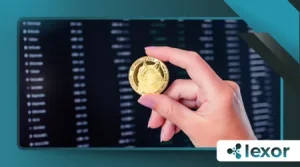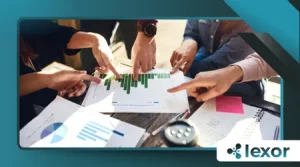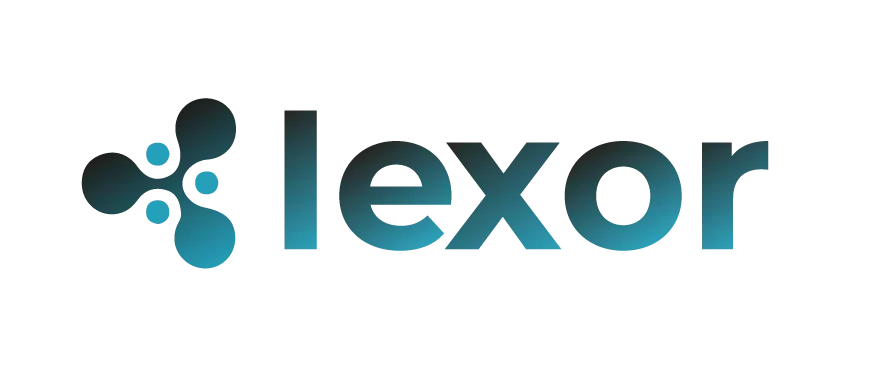What Is Tokenization and Why It Matters

What is tokenization? At its core, it’s the revolutionary process of converting tangible and intangible assets—real estate, stocks, art, intellectual property, even carbon credits—into digital tokens on a blockchain.
But this isn’t just another tech buzzword. It’s a seismic shift in how we perceive ownership, investment, and liquidity.
By 2025, tokenization has moved from experimental to essential, with institutions, governments, and individuals leveraging its power.
The implications are vast: from democratizing high-value assets to enabling instant cross-border transactions without intermediaries.
A 2024 report by Boston Consulting Group projects the tokenized asset market to exceed $16 trillion by 2030, a figure that underscores its transformative potential.
So why does this matter? Because what is tokenization if not the key to unlocking financial freedom for billions?
The Digital Alchemy of Asset Transformation
Picture a rare vintage car, typically accessible only to elite collectors. Now imagine it divided into 10,000 digital tokens, each representing partial ownership.
This isn’t hypothetical. In 2024, a 1962 Ferrari 250 GTO was tokenized on the Polygon blockchain, allowing enthusiasts to buy fractions for as little as $100.
Tokenization dissolves barriers. A small investor in Brazil can now own a slice of Manhattan real estate. An artist in Nigeria can tokenize royalties, ensuring fair compensation.
The underlying blockchain ensures transparency. Every transaction is immutable, verifiable, and free from tampering—a stark contrast to opaque traditional systems.
++How Technology Supports Special Needs Education in Early Years
Yet skeptics remain. Some argue that tokenization could lead to market fragmentation or regulatory chaos.
But consider this: Traditional markets are already fragmented. Tokenization doesn’t create complexity—it organizes it.
Breaking Down the Mechanics: How Tokenization Actually Works

At its simplest, tokenization involves three steps: asset selection, legal structuring, and blockchain deployment.
Take commercial real estate. A building worth $50 million can be divided into 50,000 tokens, each backed by legal rights to ownership and revenue.
These tokens aren’t just digital placeholders. They’re programmable. Smart contracts can automate rental distributions, voting rights, or even resale conditions.
++Crypto Mining Explained: Is It Still Worth It?
Example: A Tokyo office tower tokenized on Avalanche in 2023 now distributes monthly rent automatically to token holders via smart contracts—no property manager needed.
Security tokens (STOs) comply with regulations, unlike speculative cryptocurrencies. They’re subject to securities laws, ensuring investor protection.
But here’s the catch: Not all assets tokenize equally. Illiquid assets like fine art benefit most, while cash-flowing ones (like bonds) gain efficiency.
What is tokenization without interoperability? Cross-chain solutions (like Polkadot’s XCM) will soon let tokens move seamlessly between blockchains.
Why Banks and Governments Can’t Afford to Ignore Tokenization
JPMorgan’s Onyx division now processes over $1 billion daily in tokenized collateral.
The Monetary Authority of Singapore (MAS) has piloted tokenized bonds under Project Guardian, slashing settlement times from days to minutes.
Even the European Central Bank is exploring a digital euro that could integrate with tokenized assets.
++What Is a Crypto Exchange and How Do You Use It?
Why the rush? Because legacy finance is riddled with inefficiencies.
A typical stock trade takes two days to settle (T+2). Tokenized securities settle instantly.
The cost of remittances averages 6.5%. Blockchain reduces that to near zero.
But challenges persist. Regulatory frameworks are still evolving. The U.S. SEC treats most tokens as securities, while Switzerland’s FINMA has clearer guidelines.
The solution? Collaboration. Institutions must work with regulators to shape policies that protect investors without stifling innovation.
The Dark Horse: Tokenizing Intellectual Property and Creative Works
Imagine a novelist tokenizing future book royalties. Fans buy tokens early, sharing in the book’s success.
This happened in 2024 when sci-fi author Nina Cross tokenized her upcoming trilogy on Solana, raising $500,000 in presales.
Musicians are next. A Grammy-winning producer recently tokenized 10% of his next album’s streaming rights. Token holders earn royalties in real-time.
Even patents can be tokenized. A biotech startup tokenized a cancer drug patent, allowing researchers worldwide to invest in its development.
The upside? Creators retain control while fans become stakeholders.
The risk? Valuation is subjective. What if the book flops or the drug fails trials?
Smart contracts can mitigate this with clauses—like buyback options—to protect investors.
The Environmental Impact of Tokenization: A Surprising Benefit
One often overlooked advantage of tokenization is its potential to reduce carbon footprints.
Traditional asset trading involves massive paperwork, physical transportation of documents, and energy-intensive data centers. Tokenized assets eliminate nearly all of this waste.
A 2025 study by the Cambridge Centre for Alternative Finance found that blockchain-based asset settlement uses 87% less energy than traditional clearing systems.
When a skyscraper’s ownership is recorded on blockchain rather than in filing cabinets across multiple government offices, the environmental savings become substantial.
This makes tokenization not just a financial innovation, but an ecological one as well.
The Human Element: How Tokenization Changes Relationships
Beyond mechanics and markets, tokenization is reshaping human connections to value. Consider a vineyard where wine enthusiasts can own tokenized shares of specific barrels.
These micro-investors become emotionally invested, visiting “their” vineyard, learning about winemaking, and forming communities around shared ownership.
This creates what economists call “stakeholder capitalism” – a system where financial participation breeds deeper engagement.
The same principle applies to tokenized sports teams, where fans become partial owners with voting rights on minor decisions.
Suddenly, asset ownership transforms from cold calculation to passionate participation, rewriting the social contract of investing.
The Future: AI, Interoperability, and Mass Adoption
By 2025, AI oracles will verify real-world asset data, ensuring accurate token pricing.
Cross-chain bridges (like Cosmos’ IBC) will let a tokenized NYC condo trade on Ethereum, then move to Solana for faster transactions.
Institutions will tokenize entire ETFs, making them tradable 24/7.
Retail investors will access private equity deals once reserved for billionaires.
But the biggest shift? Fractionalized ownership of everything.
From rare sneakers to solar farms, tokenization turns illiquid assets into liquid opportunities.
Final Thought: A New Era of Ownership
Tokenization isn’t just a financial tool—it’s a societal shift.
It redistributes power from centralized gatekeepers to individuals.
It turns passive consumers into active stakeholders.
And it redefines what it means to own something.
The question isn’t whether tokenization will dominate—it’s how quickly you’ll adapt.
Key Data Reference
| Metric | Value | Source |
|---|---|---|
| Projected tokenized asset market by 2030 | $16 trillion | Boston Consulting Group |
| Daily tokenized collateral processed by JPMorgan Onyx | $1 billion+ | JPMorgan |
Frequently Asked Questions
Q: Is tokenization the same as cryptocurrency?
A: No. Cryptocurrencies like Bitcoin are native digital assets. Tokenization represents real-world assets on a blockchain.
Q: Can tokenized assets be hacked?
A: While no system is 100% secure, blockchain’s decentralized nature makes it far more resilient than traditional databases.
Q: How do I invest in tokenized assets?
A: Platforms like Securitize and Tokeny offer compliant security tokens. Always verify regulatory status before investing.
Q: Will tokenization replace banks?
A: Unlikely. Banks are adapting, not disappearing. JPMorgan and others are already leading in tokenized asset solutions.
Q: What’s the biggest barrier to tokenization?
A: Regulation. Clear, global frameworks are needed to ensure investor protection without stifling innovation.
This isn’t just finance’s future. It’s yours. What is tokenization if not the ultimate equalizer?
